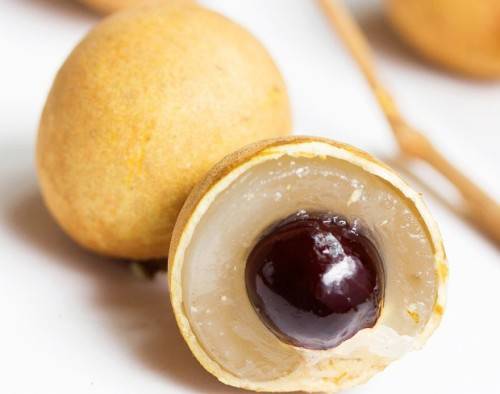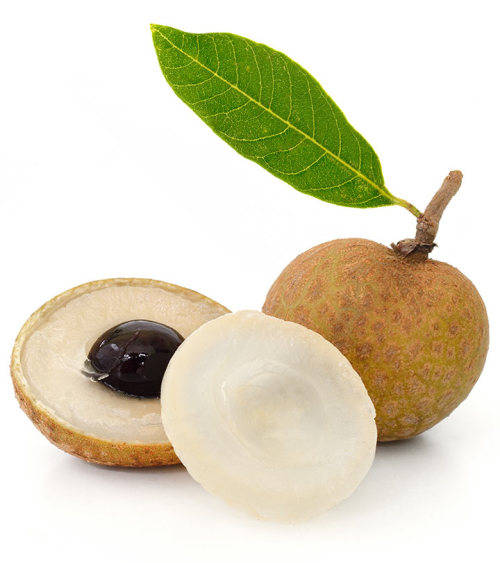Longan (Dimocarpus longan) is a small, round, sweet, and watery fruit – very similar to litchi or lychee. It has a brownish thick shell (pericarp) that hardens as it ages.
Longan is an excellent source of vitamins and minerals. Almost every part of the fruit offers a multitude of benefits.
The fruit not only tastes great, but it is also a reservoir of bioactive ingredients – such as gallic acid, epicatechin, quercetin, and other saponins – that make it a potent antioxidant, anti-aging, anti-inflammatory, mildly sleep-inducing, vulnerary, and anticancer agent.
When it is young and fresh, you can peel the pericarp off to get a translucent, white, watery pulp embedding a big black seed, almost like an eye. You need to separate the seed and eat; the seeds can also be processed to obtain essential oils and extracts.
These super delicious tropical fruits of the Sapindaceae family have high levels of polyphenols. The polyphenolic compounds like gallic acid eliminate the stress-causing free radicals and toxic intermediates that can cause cancer. The fruit, flower, and the seed are equally potent antioxidants.
Traditional Chinese Medicine used longan seed extracts that interfere with DNA synthesis and suppress the undesirable oncoproteins in the tumors and destroy them.
Hence, consuming longan fruits or seed extract powders can systematically inhibit breast, colorectal, liver, lung, and cervix cancer cells
The Asians used longan fruit pulp to heal wounds, allergies, flu, and other inflammatory diseases.
Longan seeds are excellent antifungal agents. Mouthwashes containing longan extracts can fight oral infections caused by fungi (Candida and Cryptococcus species)
Because of their saponin content, longan seeds are dried and used in shampoos and hair washes.
The Chinese call the longan ‘Dragon’s eye’ because of the black colored seed it has – resembling an eye.
GROWING INSTRUCTIONS INCLUDED









